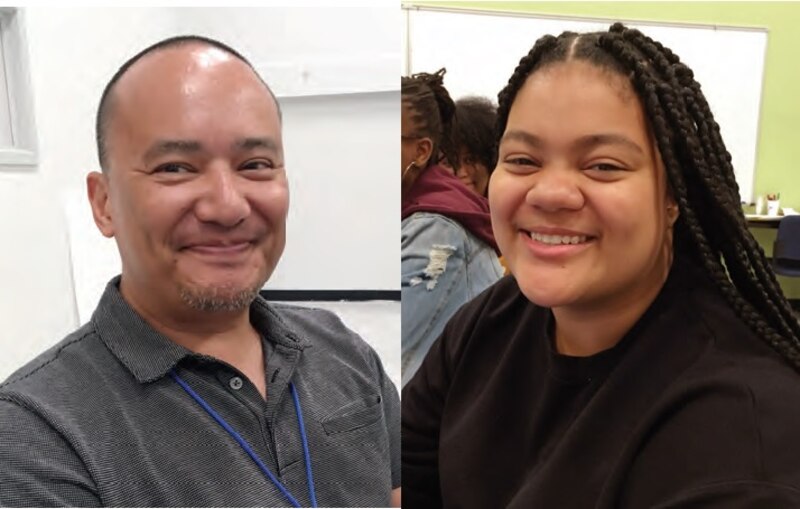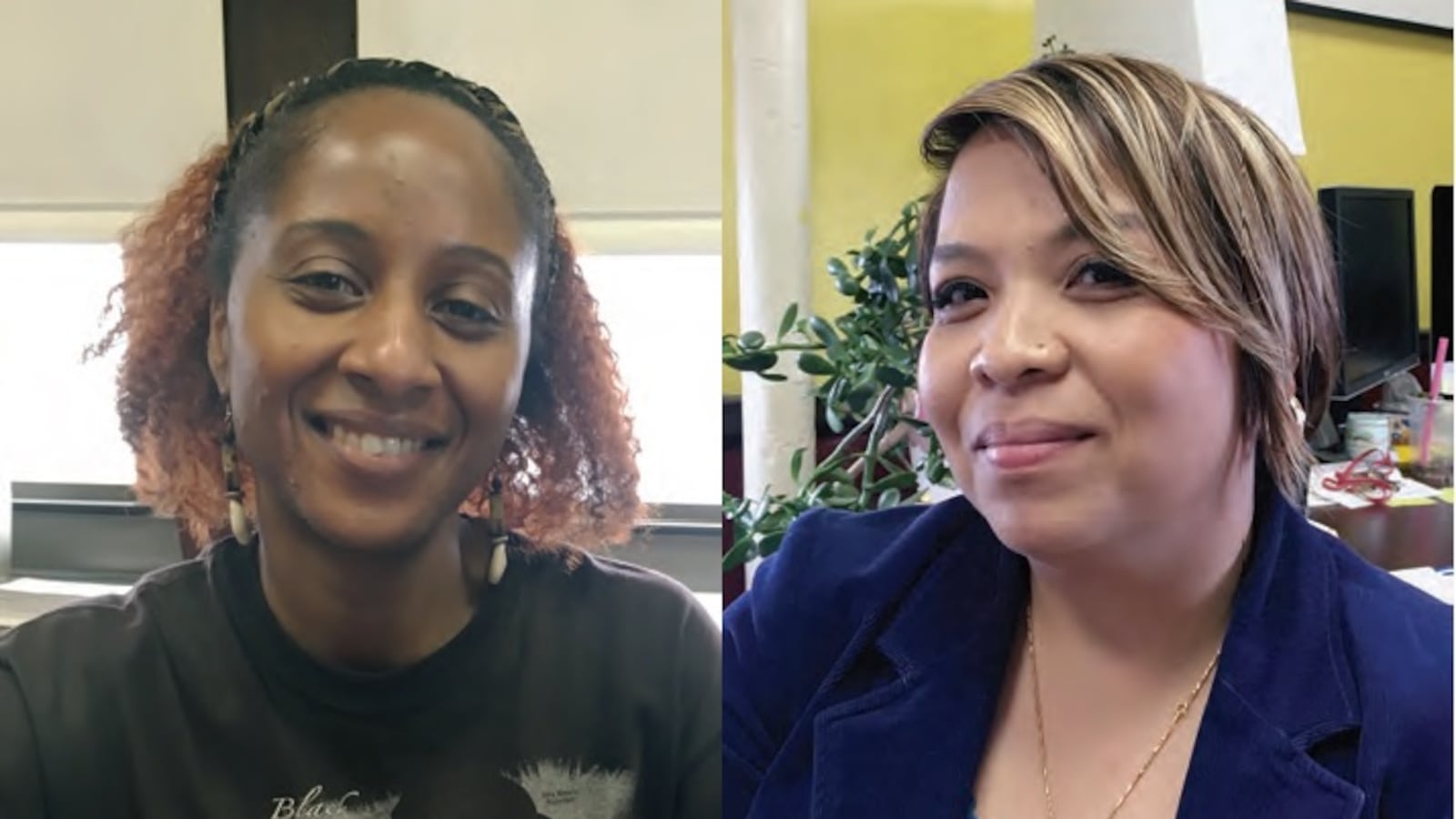This article was originally published in The Notebook. In August 2020, The Notebook became Chalkbeat Philadelphia.
Cassandra Lopez remembers the moment last spring that she and classmate Jamal Johnson, both juniors at the Academy at Palumbo, received notices that they had been accepted into the School District of Philadelphia’s Advanced Senior Year (ASY) program.
“We just screamed in the hallway,” she said.
Lopez and Johnson are part of the first class accepted into the program, a collaboration with the Community College of Philadelphia (CCP) designed to smooth the transition from high school to college and make success in college more likely.
The 60 students from 22 District schools throughout the city spent their senior year taking courses at CCP. They are based at Parkway Center City Middle College, a short walk away from the campus, where they get counseling and advising services and have their own wing and computer lab.
If they successfully complete the program, they get a high school diploma and up to 24 college credits.
In addition, 36 students from six Mastery Charter high schools take part in a similar program based at their own schools. Mastery has offered the program for seven years.
“We’ve seen tremendous outcomes,” said David Thomas, associate vice president of strategic initiatives at CCP, with all the students passing their college level courses.
“We’re trying to make 12th grade year more meaningful,” he said. “You help students around time management, the accelerated pace of college courses.”
In some cases, he said, a student might have taken almost enough courses by the end of their junior year to graduate and might coast through senior year. In other cases, they might be in a District high school that’s not the best fit.
All students in the program have been judged capable of handling college work based on their performance on the College Board’s Accuplacer tests in college-level English and math.
But Tamika Tabbs, program coordinator at Parkway, said that perseverance and “grit” as reflected in interviews and essays play a major role in the selection process.
In many cases, “when the kids come here, they’re terrified,” said Parkway Principal Anh Nguyen- Brown. “Can you imagine if they were (starting) in a four-year-college?
“Now, freshman year won’t feel like freshman year.”
Johnson said that while the change from Palumbo was considerable, once he got used to the program, “it was refreshing.”
“Our success is about student support,” said Tabbs, who helps the District students with financial aid forms, applications and college admissions essays.
For Mastery students, program manager Lance Dronkers is stationed on the CCP campus to provide support.
The students usually take four courses in the fall and four courses in the spring semester. Courses this year have included Child Psychology, Survey of Justice, Women’s Studies, and Computer Science with Java and Python.
Tabbs said that all but three of this year’s graduates from the District program are headed to colleges, including Drexel University, Temple University, Morehouse College and CCP. The other three, she said, are going into the military.
Johnson is headed for the University of Pittsburgh to major in international relations and pre-law. Lopez will be a pre-med at Temple.
The District is reducing the number of students participating in Advanced Senior Year in the next school year to 40, so there will be enough funding to offer more students the chance to get college credit under other initiatives.
Those include Dual Enrollment, in which a student may take a single course at CCP or another college, and Middle College High School, which allows students to take both high school and college courses.
“We are focused on equity across the District,” said District spokesman Lee Whack. “We are increasing the number of students who participate in dual enrollment across the city.”
Whack said that the ASY program costs $3,816 per student for the usual eight courses plus an additional $1,600 for books, or $200 per course. A dual enrollment student taking one course would cost the District $477 and another $200 for books.
Julia Gaskin-West, a student at the Pickett campus of Mastery High School, said that through her junior year, “I hadn’t felt challenged in a really long time.”
But she says that changed when she began taking courses at CCP as part of the Advanced Senior Year program.

Lance Dronkers and Quincey Robinson (l. to r.) Photo by Paul Jablow
Mastery’s Lance Dronkers said it has both smoothed the path from high school to college and prompted more students to apply to more selective universities.
“It’s a struggle to convince students and families to apply to amazing colleges that are far away, offer a lot of money and are predominantly white,” he said.
But in many cases, he said, the more selective colleges have the resources to provide a “free ride” for
talented low-income students.
In the early years of the program, he said, “we were under-matching,” or aiming too low in advising students on where to apply. And having a pipeline of alumni at these selective colleges will make current students more likely to consider them.
Dronkers said that more than 90 percent of students in the program go directly to a four-year college, with about 70 percent on full scholarship.
Students in the program say, not surprisingly, that the pace and difficulty of college work got them to step up their game.
“It made me work harder for the grade,” said Quincey Robinson, 17, a Mastery-Pickett student who will attend Connecticut College next fall.
“It showed me what I’m capable of,” said Gaskin-West, who plans to spend her first two college years at CCP–one option for students needing to save money – and then apply to Lafayette College, Swarthmore College or Mt. Holyoke College.
“They challenged my ability to stop procrastinating,” said Lanise Prater, 18, also at Mastery-Pickett, who is headed to Macalester College in Minnesota on a full scholarship. “I learned to navigate with different professors.”
Dronkers said that this ability to navigate in a “less personal” environment is one of the key
benefits of the program. “In college, you need to figure out what the professor is looking for,” he said. “In high school, you kind of know.”

